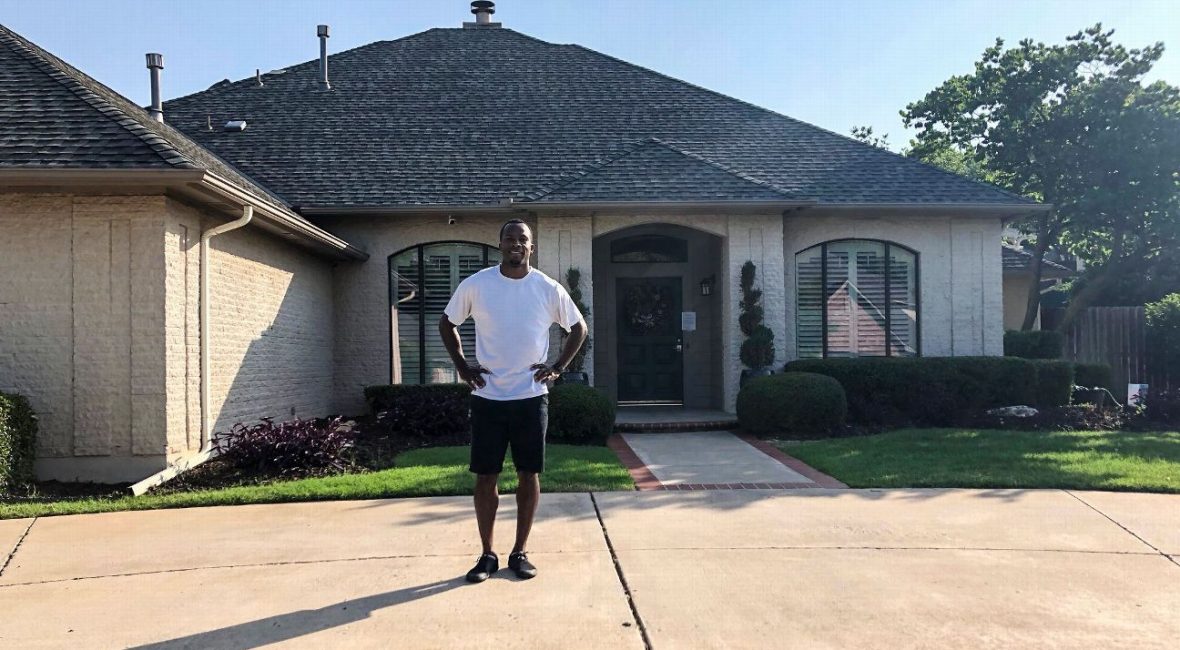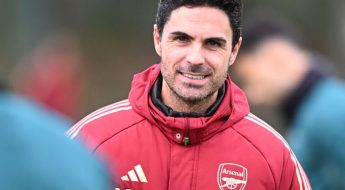Ryan Broyles spun $60K per year NFL budget into real estate biz

A previous investor had fallen through. Ray Reyes, a restaurateur based in Norman, Oklahoma, was searching for another partner. Ryan Broyles, meanwhile, had been looking for another opportunity.
Broyles read Reyes’ proposal for a restaurant overlooking the University of Oklahoma campus, understood the market and jumped in. At the time, Reyes didn’t know the type of investor he was getting for The Porch.
Broyles worked hard rehabbing from injuries his entire time with the Detroit Lions. He knew how to make his money last, living on $60,000 per year during his career so he could have funds after football. He was smart and shrewd, and he wanted to work. When Reyes saw Broyles jump in alongside the workers they hired to construct the restaurant, he knew he had something different.
“He’s a hands-on guy, likes to be right in the middle of things,” Reyes said. “Likes to really expand his knowledge base. He talks about his real estate investments and then gets in there and starts demo-ing tile and putting in toilets, doing things of that nature. He’s kind of a Renaissance man.”
This has been post-football life for Broyles — who left Oklahoma as the FBS’ all-time leader in receptions (349, a mark that since has been broken) — following an NFL career that began as a 2012 second-round pick by the Lions.
Football never worked out, with injuries continually derailing Broyles’ chances to be consistently productive. He was released during the 2015 preseason.
Broyles already had begun plotting his future, even if he wasn’t quite ready to leave the NFL behind. When Broyles was at Oklahoma, a mentor, Rachel Welcher, spoke to him about options for his money if he reached the NFL. She explained different ventures.
One stuck: real estate.
“When you get some money, you’ve got to put it somewhere,” Broyles said. “So 2012, the first time I bought a house, even when I was in the league, I was buying property. But I never thought that I would own a property-management company. Never thought at some point I would be raising money to build buildings and apartments. Once football wasn’t in my future, it was kind of an easy transition for me.
“I’m like, ‘You know what? This is something I’ve already established. I want to continue to build that way.’ Obviously, you have a lot of successful investors who love real estate, so I wanted to go all-in in that aspect.”
Between solo and joint ownership, Broyles and his wife, Mary Beth, have approximately 40 rental properties in Oklahoma and Texas, with rents ranging from $600 to $3,000 per month. They started a property-management company, Infinite Rentals, which Welcher helps manage.
Broyles also started flipping houses, but the self-described “hoarder” prefers to hold on to properties for future investment and equity unless the value is too good.
Not that he ever anticipated his life going quite like this when he left Oklahoma. After three injury-riddled years in Detroit, Broyles was cut by the Lions, forcing him to re-evaluate his NFL future. He spent the 2015 season working out four days a week at the Michael Johnson Performance center in Dallas, waiting for a phone call for a tryout or a chance to re-enter the league.
That call never came. Broyles went to Oklahoma’s pro day the following spring. He had a tryout with Jacksonville that went nowhere. Not wanting to be a guy who hung on just to hang on, he moved on.
That 2015 season taught him that he never again wanted to be in a position where he didn’t know what was coming next. He says now, that during the 2015 season, even his wife didn’t know there was part of him struggling with that.
“Just the mental strain of being on the fence,” Broyles said. “A lot of people my first year were like, ‘Are you going to give it another shot?’ I’m like, ‘Heck yeah, I’m going to give it another shot, but it’s not up to me. Somebody’s going to have to give me a call.’ So having that communication with my family and friends and really not giving them any concrete answers.
“Then you have the naysayers, who are saying’ he’s never going to play again,’ and being the competitor that I am, I’m going to give it a shot, so I’m going to work hard at it. But obviously, if a call doesn’t come, like it didn’t, I felt comfortable because I knew what my next step was, and it was going to be in real estate.”
The idea came from Welcher years before. She first met Broyles in her special-education class at Norman High School when he came to work with students. She saw how he interacted with special-needs kids and suggested he work at the YMCA summer camp while he was at Oklahoma, after getting university approval.
That was more than a decade ago. Welcher had by then started to do her research, too. She knew the percentage of athletes who ended up broke. She heard Broyles talk about wanting to reach the NFL.
Welcher began repeating this message: You want to live to be 100 years old? Your money has to last. She’d grown up around commercial real estate, invested on her own and began advising and making suggestions. She says he didn’t listen then.
Broyles bought his first investment home in Tulsa in 2012, a property he recently sold. He eventually bought three properties with Welcher during his Lions tenure, all based in Oklahoma.
“It was just stuff we did over the phone. It just became like a drug. We gotta do more, gotta do more, gotta do more,” Welcher said. “And then he bought a house in Dallas, and he was like, ‘I love this house, but I want to move back to Oklahoma.’
“I told him, ‘You know what? That’s going to be your next rental.’ He’s like, ‘So I’m going to keep my house in Dallas?’ I’m like, ‘Yep.’ That thing has turned out great.”
It was the start of Broyles’ real estate career, one he’s still pursuing 40-plus properties later. He branched out to restaurant co-ownership last year, too. But there’s still always a connection to sports. He describes The Porch restaurant as a “4-iron” away from the school’s football stadium. And he’s compared his new world of real estate to his old one of memorizing X’s and O’s, of drilling route combinations and route trees.
When he finishes a transaction, Welcher said, Broyles compares it to scoring a touchdown. He still sticks to a budget, though it’s more than his $60,000 NFL plan, because he has a son, Sebastian, and is doing well in real estate. Plus, he has a handle on plans for his long-term future. He’s a real estate and restaurant investor. He’s a father. A husband. A mentor to those who might want to follow in his path.
He learned something else along the way, too, something that helped him partner with Welcher and Reyes and other people in his real estate ventures — something he didn’t always understand in the NFL.
“When you’re playing in the NFL, you’re speaking with like-minded people, you’re in a locker room. You’re hanging with high-net-worth people,” Broyles said. “I always kept the people that weren’t in my world away, but now that I’m in the real world, I need people. I need relationships. I need bankers. I need mentors.
“So that’s really been a jump-start for me. I think a lot of people, when they leave the game, they may not realize their full potential until they actually have to use it.”





